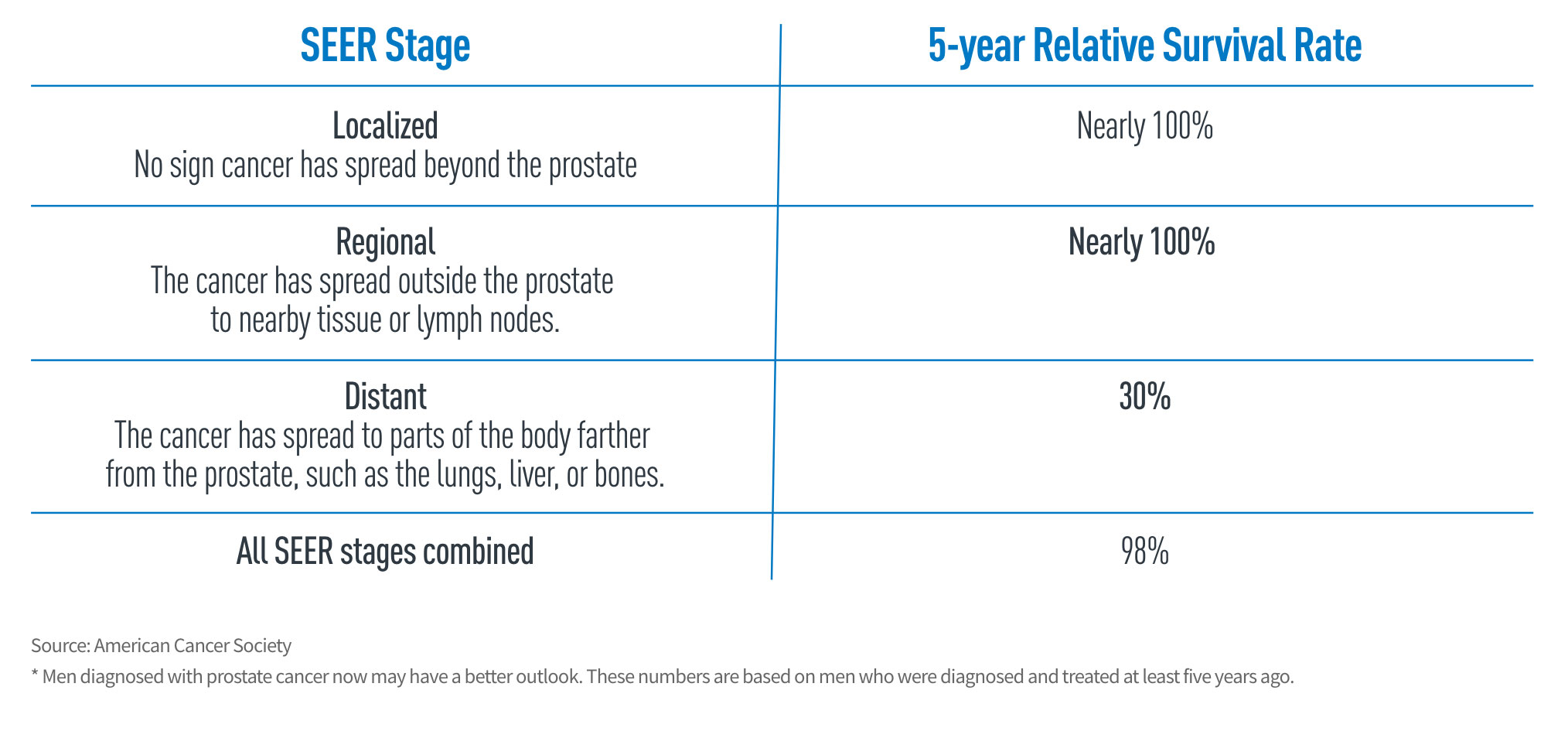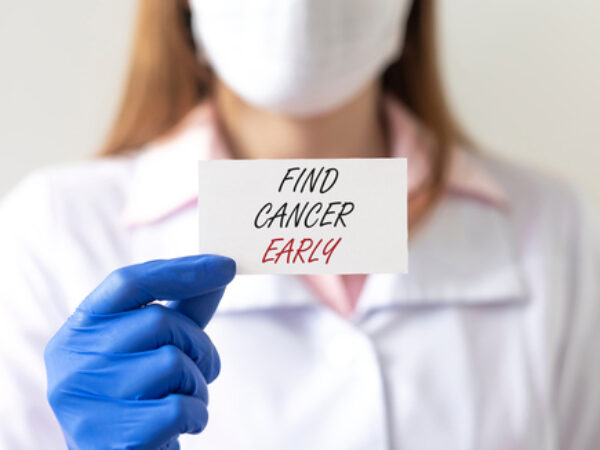Prostate cancer is a disease of contradictions. It’s traditionally considered to be an “old man’s disease”, but it’s now showing up in younger men. It’s easily treatable, and if found early, has a survival rate over 95%. But it’s a slow-growing cancer with few symptoms, and so it’s difficult to detect.

“There’s a lot of talk out there about testing. But the decision belongs to you and your primary care physician. Make your decision about getting tested. Get treated. And getting back to living your normal life as quickly as possible.”
Dr. Charles Shideman, Radiation Oncologist, MRO | Regions
Screening to detect prostate cancer is a subject of contradictions as well. New findings are changing the advisability and the recommended ages for prostate screening. And different medical organizations have different recommendations.
However, there’s one point that all organizations agree on: if you’re thinking about getting tested for prostate cancer, talk with your doctor, and learn as much as you can so you can make informed decisions.
The COVID-19 pandemic has resulted in many elective procedures being put on hold, and this has led to a substantial decline in cancer screening.
Prostate cancer 5-year relative survival rates *
Prostate cancer is a disease of contradictions. It’s traditionally considered to be an “old man’s disease”, but it’s now showing up in younger men. It’s easily treatable, and if found early, has a survival rate over 95%. But it’s a slow-growing cancer with few symptoms, and so it’s difficult to detect. The American Cancer Society uses the SEER (Surveillance, Epidemiology, and End Results) database to track 5-year relative survival rates for prostate cancer in the United States. These numbers are based on men diagnosed with prostate cancer between 2010 and 2016.

What Are the Benefits and Harms of Screening?
The goal of screening for prostate cancer is to find cancers that may be at high risk for spreading, and to treat them early. However, most prostate cancers are slow-growing or even don’t grow at all. And many prostate cancers found by screen-ing can be managed without surgery, radiation, or chemotherapy.
Downsides of screening
- False positive results: an abnormal PSA test, but no prostate cancer. False positives often lead to unnecessary testing, like a biopsy, and may cause unnecessary anxiety.
- Diagnosis of a prostate cancer that is not likely to harm you or kill you, resulting in surgery or radiation that is unnecessary.
- Waiting for and receiving results can be stressful.
- Neither the PSA test nor the DRE is 100% accurate.
- Treating prostate cancer may lead to erectile dysfunction or urine leakage, causing more health problems than if the cancer were left alone.
Prostate-specific antigen (PSA) blood test
Prostate-specific antigen (PSA) is a protein made in the prostate gland. If your PSA level is high, you may need further tests.
Digital rectal exam (DRE)
For a digital rectal exam (DRE), the doctor inserts a gloved, lubricated finger into the rectum to feel for any bumps or hard areas on the prostate that might be cancer.
When should you talk to your doctor about prostate screening?
The American Cancer Society (ACS) recommends that you make an informed decision with your doctor about screening for prostate cancer.
Age 50 if you’re at average risk.
Age 45 for men at high risk: African Americans and men who have a father or brother diagnosed with prostate cancer younger than age 65.
Age 40 for men with more than one close relative who had prostate cancer at an early age.
Risk Factors
Factors that can increase your risk of prostate cancer include:
- Age. Your risk of prostate cancer increases as you age.
- Race. Black people have a greater risk of prostate cancer than people of other races. The cancer is also more likely
to be aggressive or advanced. - Family history. If a parent, sibling, or child has been diagnosed with prostate cancer, your risk may be higher.
Or, if you have a very strong family history of breast cancer. - Obesity. People who are obese may have a higher risk of prostate cancer. In addition, the cancer is more likely to
be more aggressive and more likely to return.
Prostate cancer may not cause symptoms in its early stages.
But more advanced prostate cancer may cause symptoms. See your doctor if you have any warning signs or symptoms.
- Trouble urinating
- Decreased force in the stream of urine
- Blood in the urine
- Blood in the semen
- Bone pain
- Weight loss
- Erectile dysfunction
There’s no sure way to prevent prostate cancer.
You can’t control all your risk factors. For now, the best advice is:
- Get to and stay at a healthy weight.
- Keep physically active.
- Choose healthy foods over supplements. No studies have shown that supplements reduce your risk of prostate cancer.
- Eat healthy, including a variety of fruits, vegetables, and whole grains. Avoid or limits red and processed meats,
sugar-sweetened beverages, and highly processed foods.


